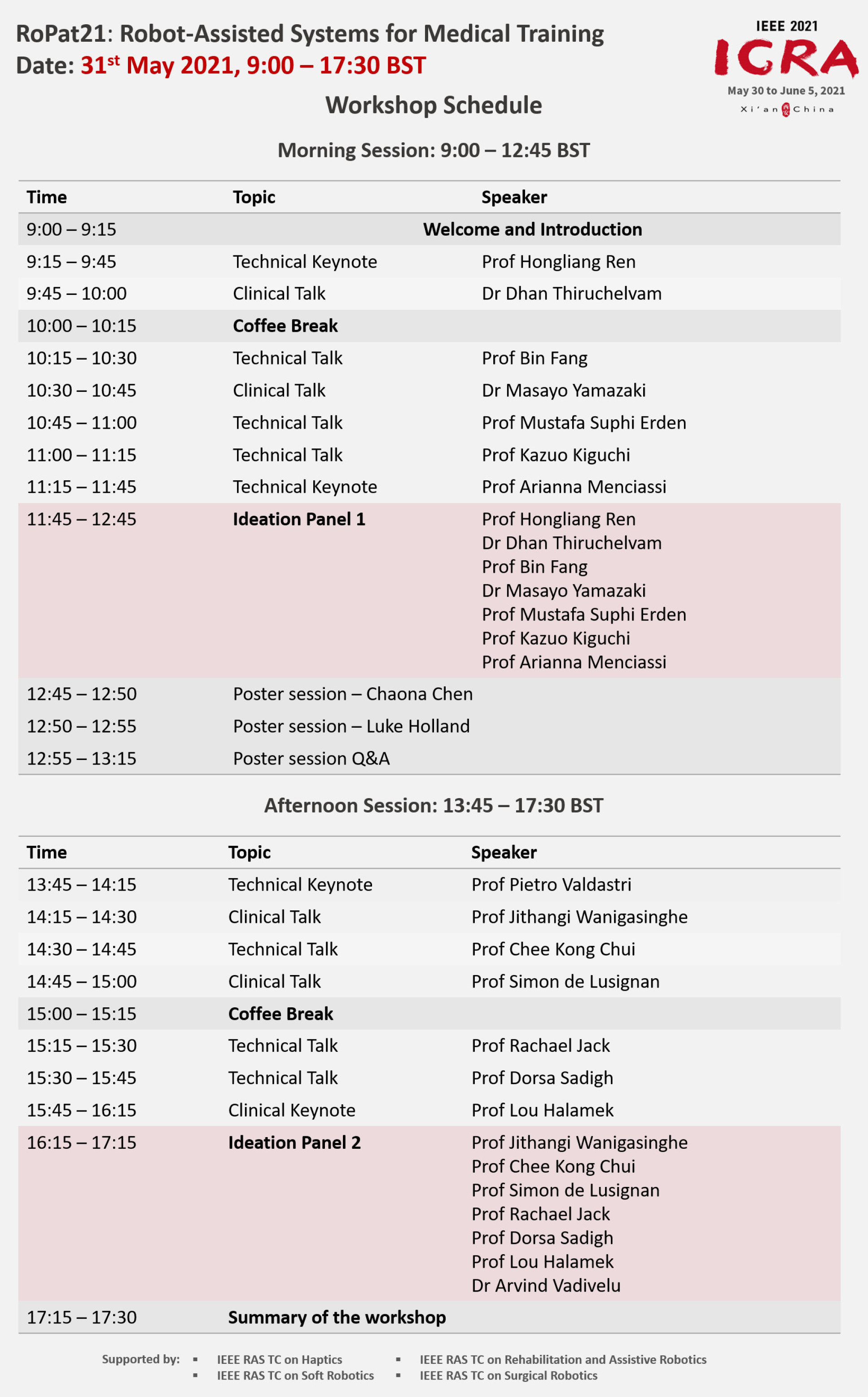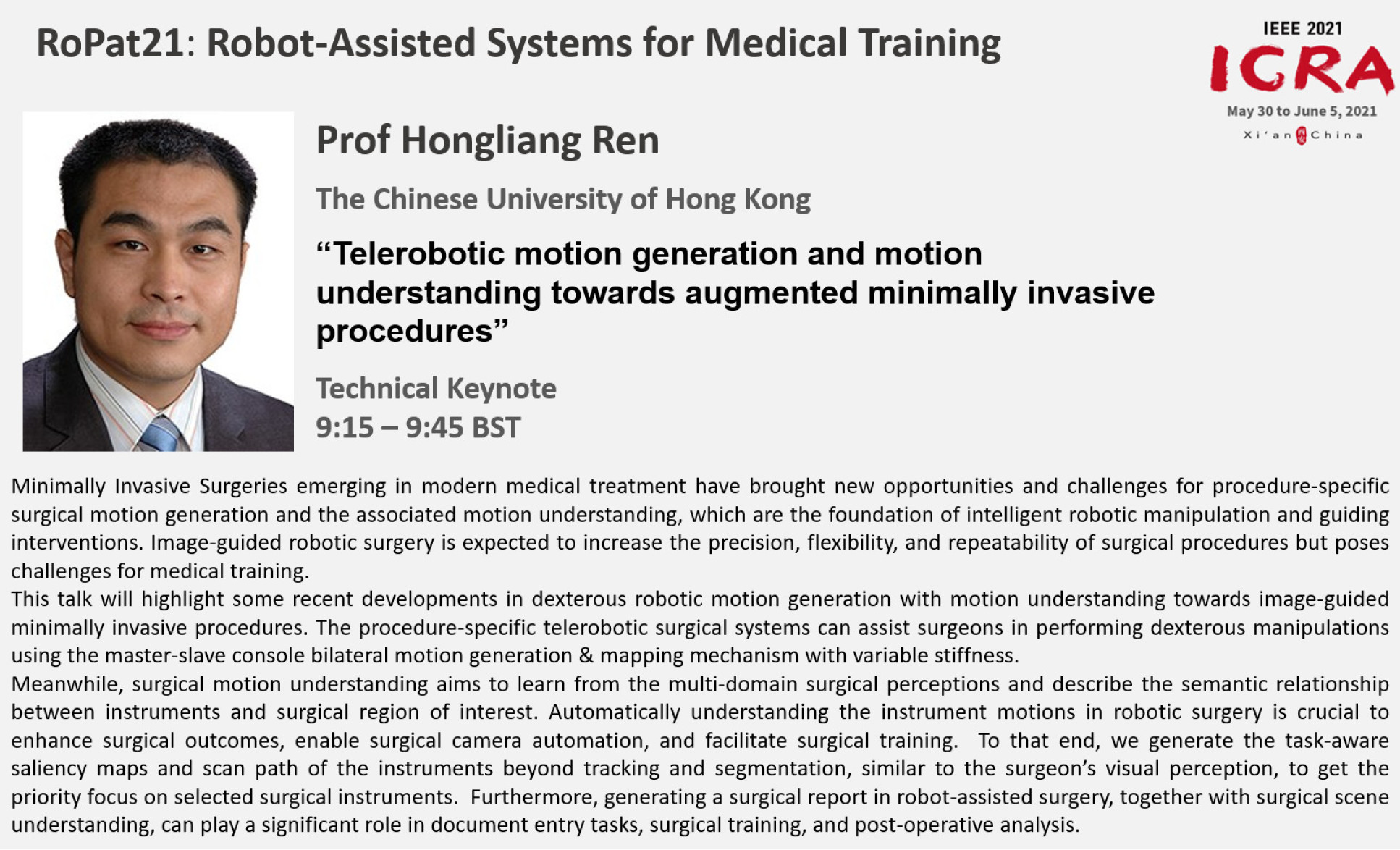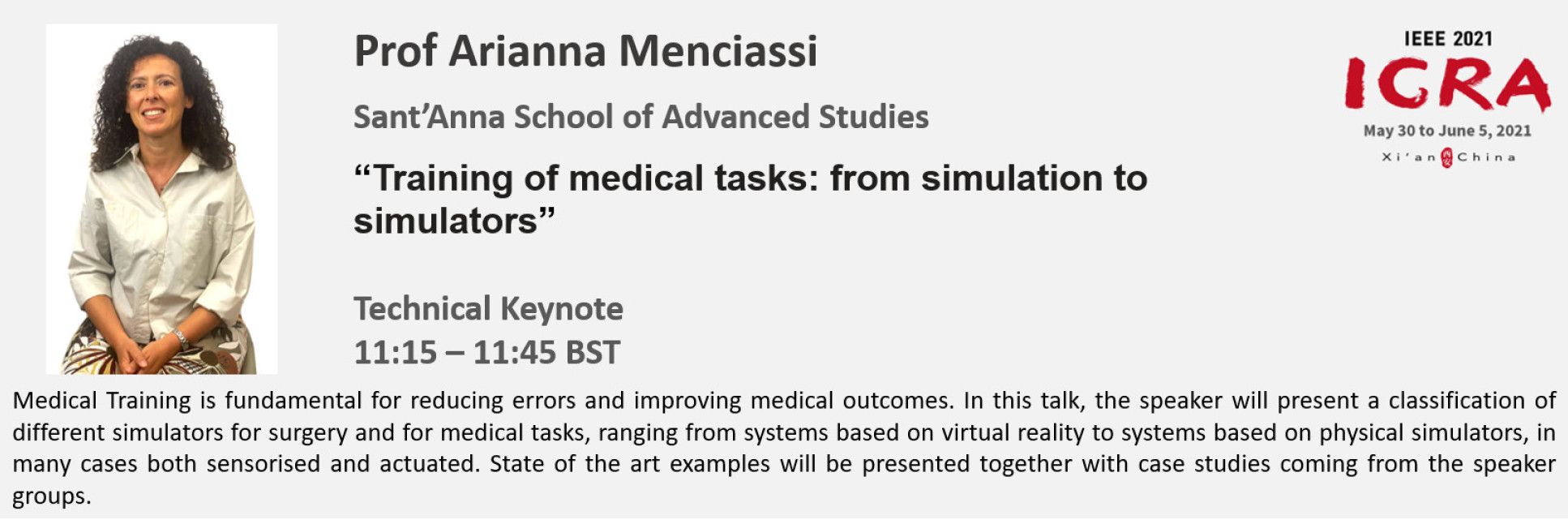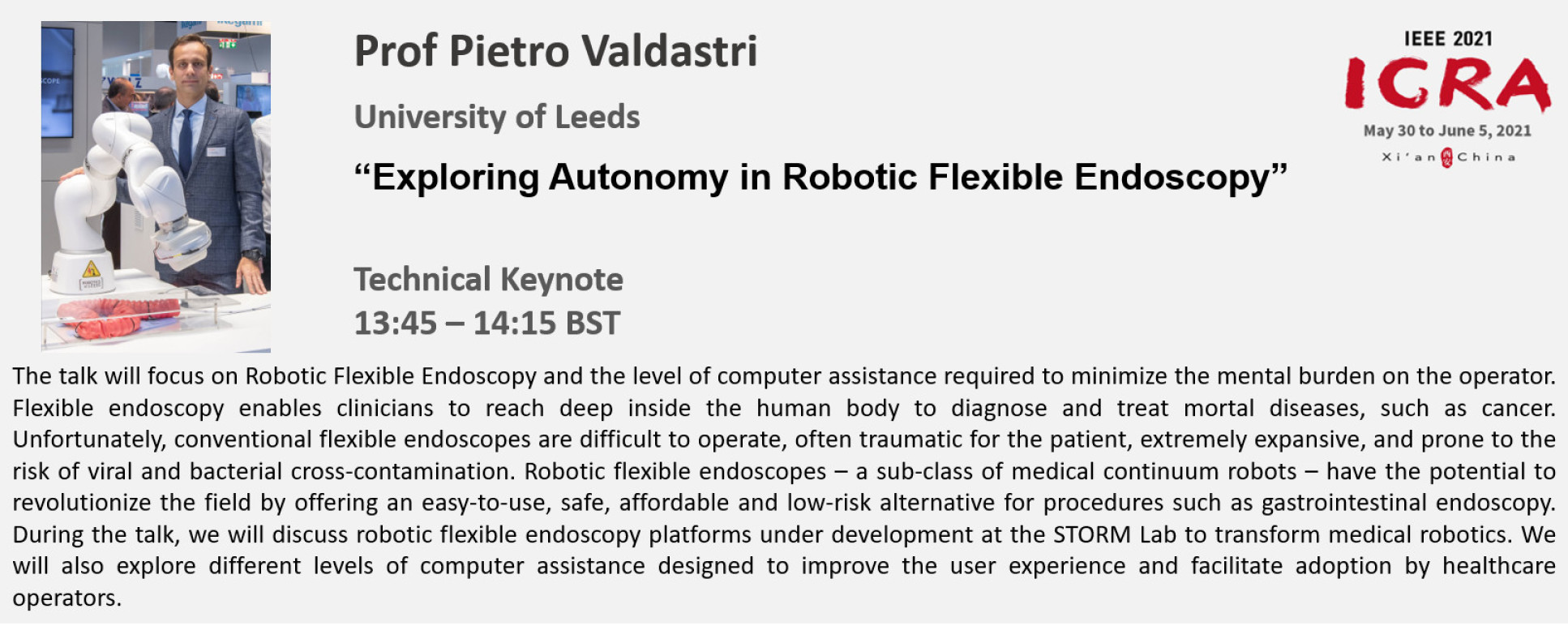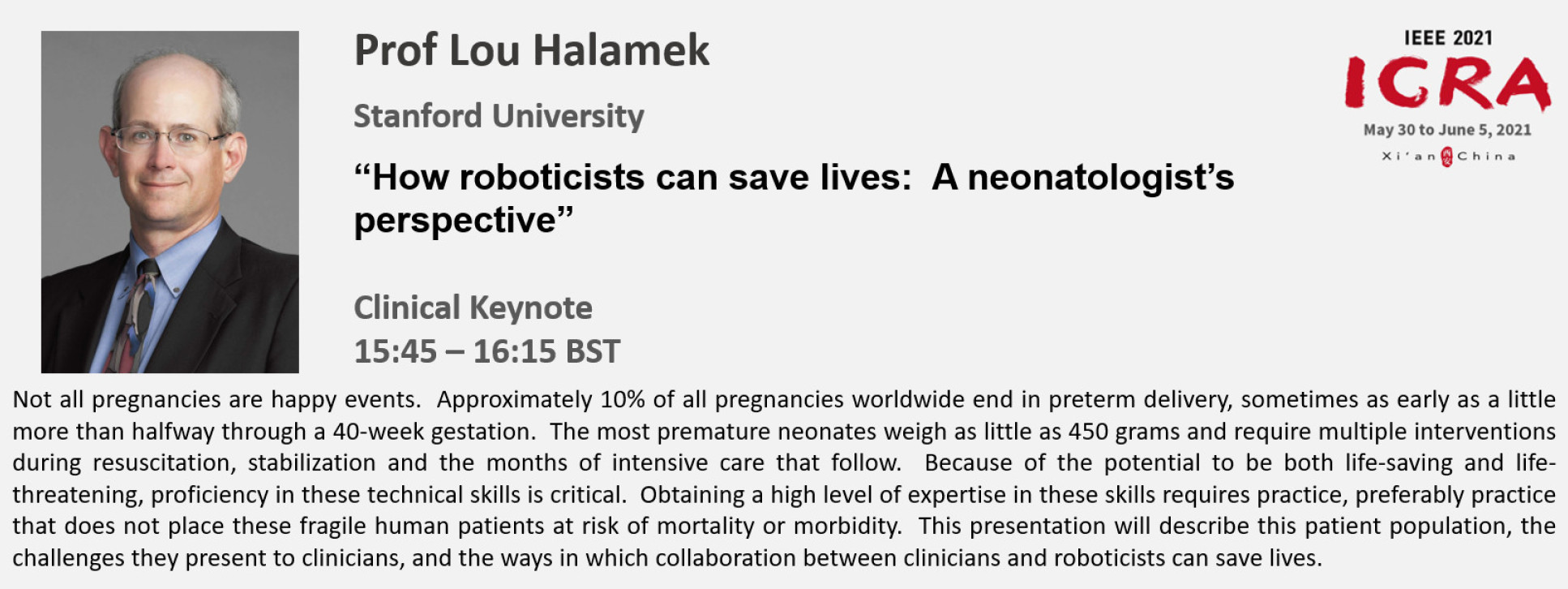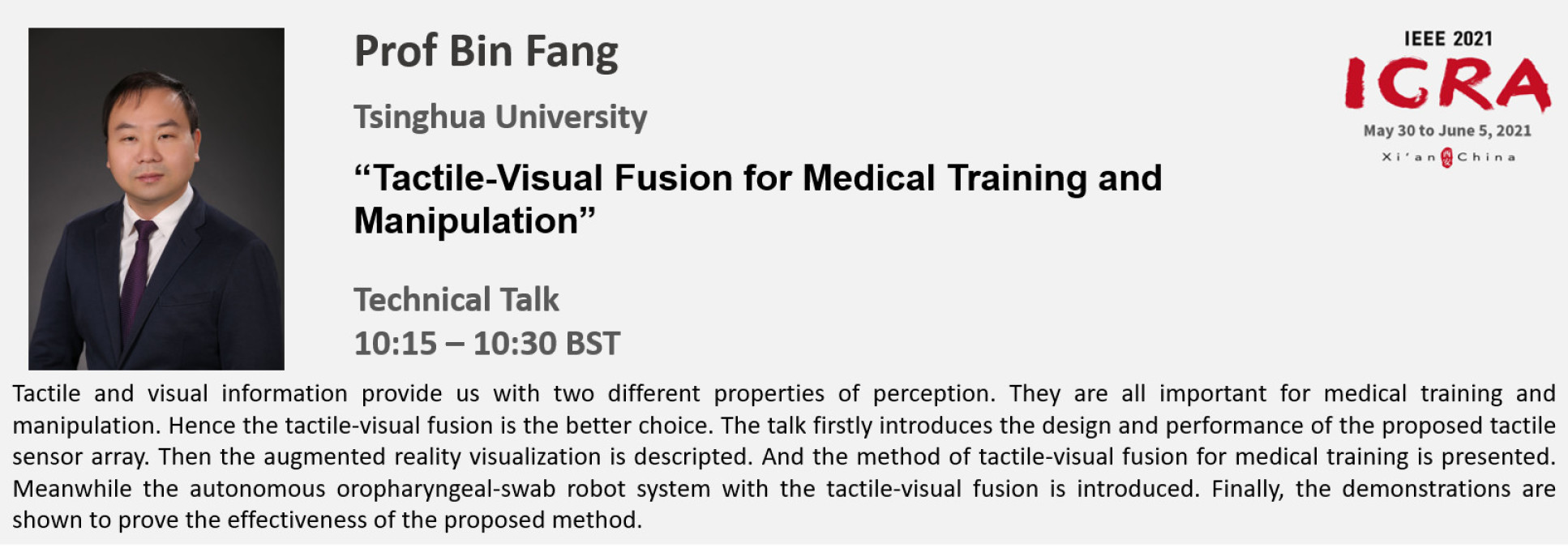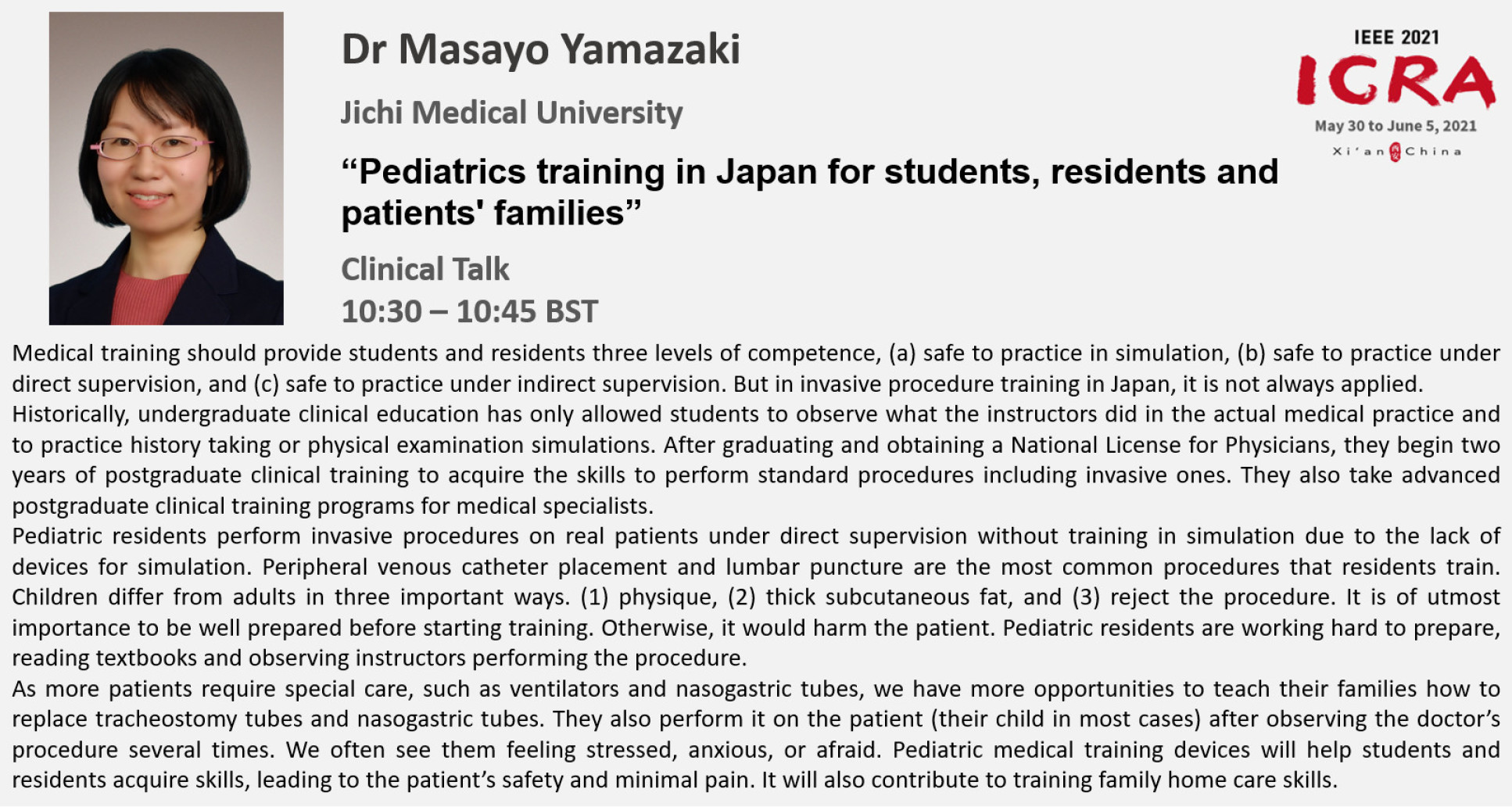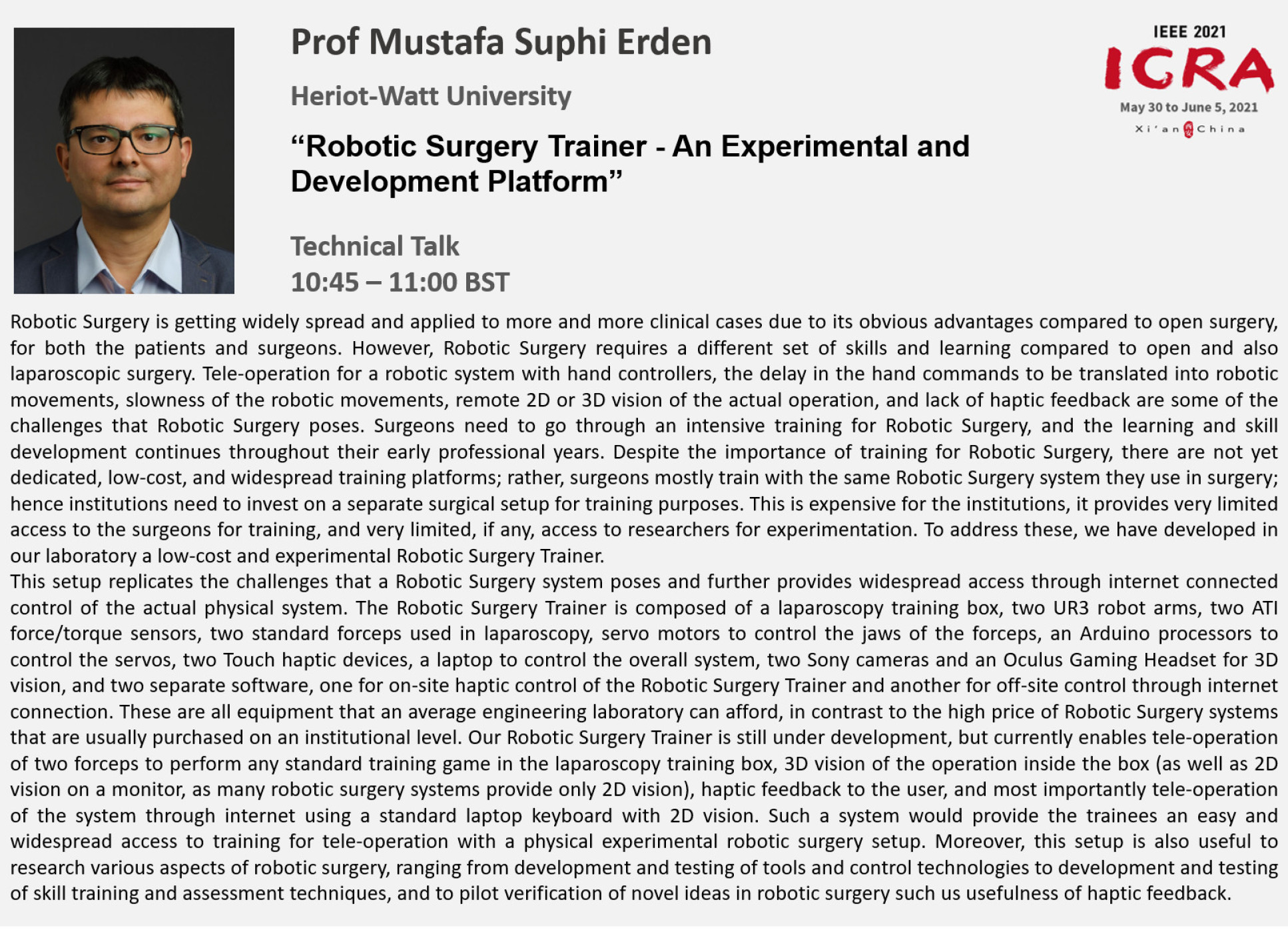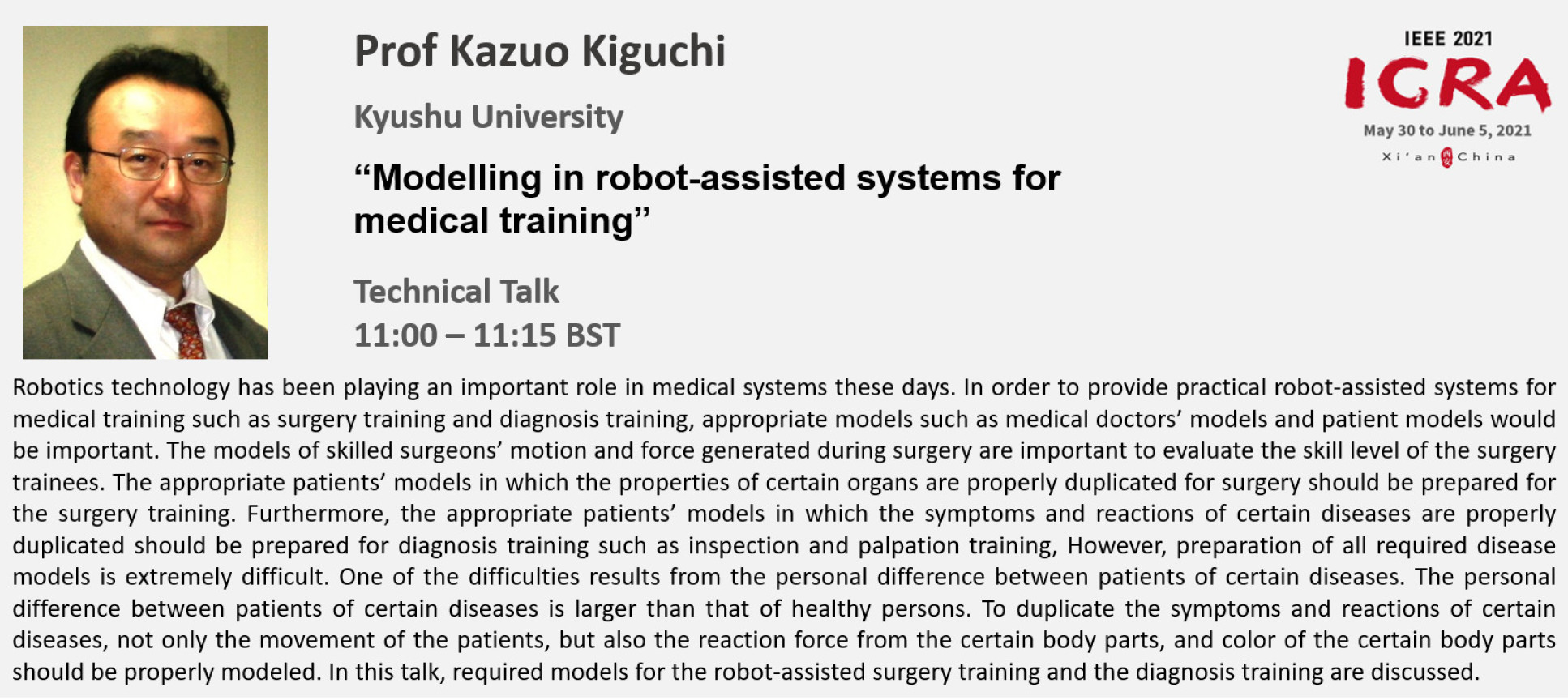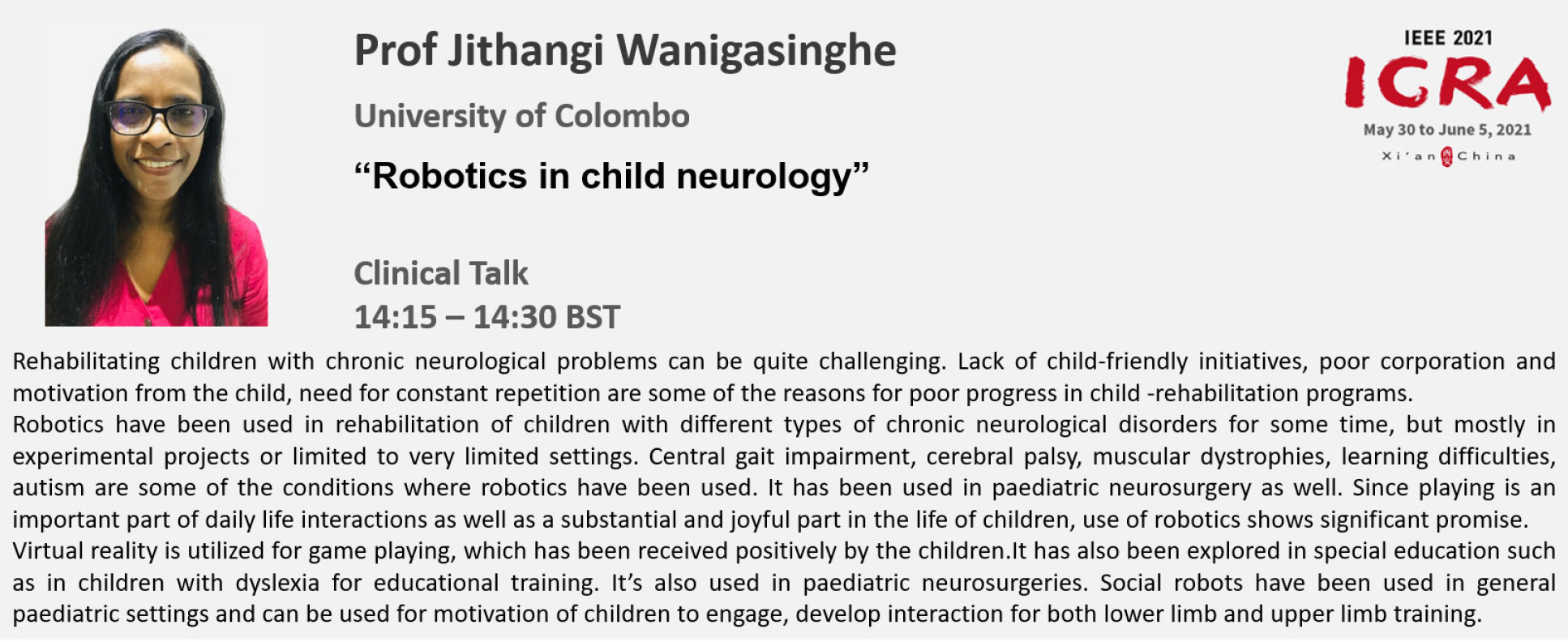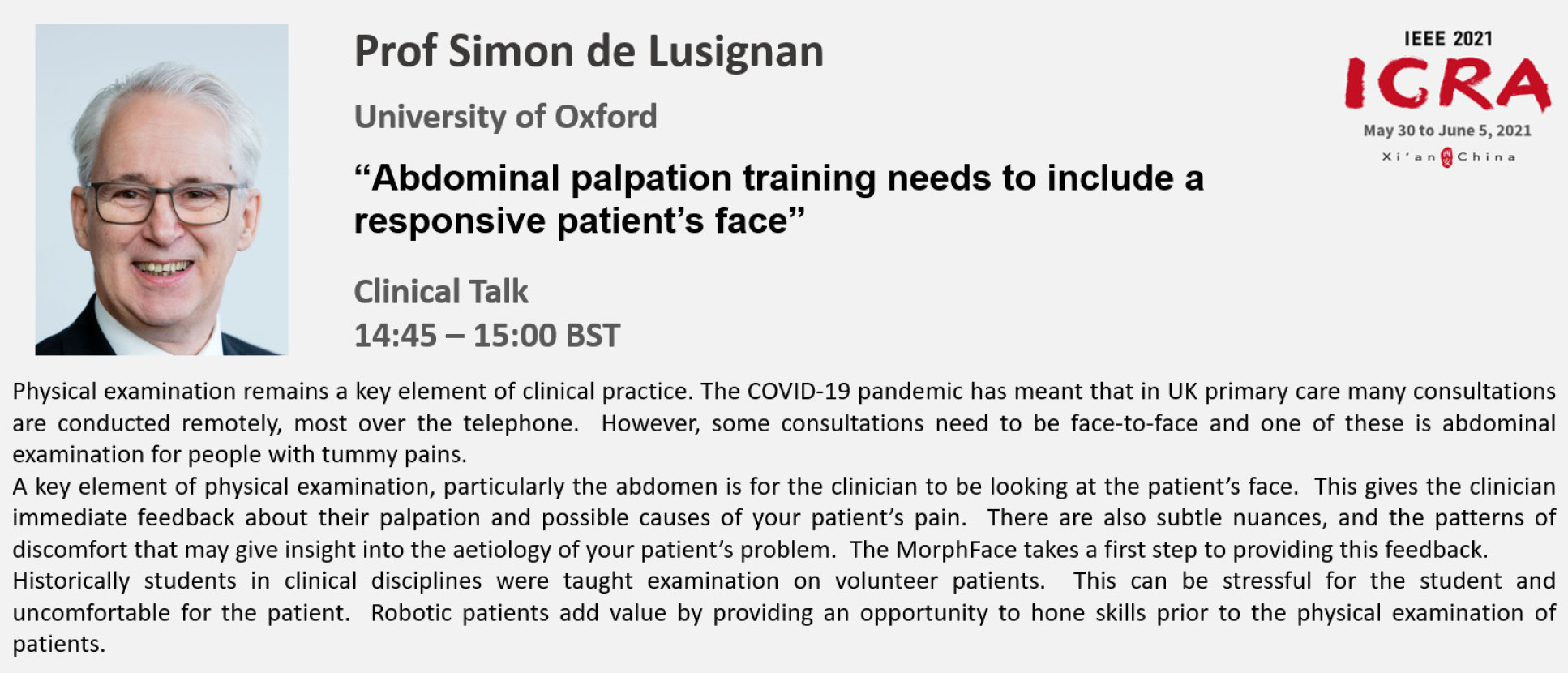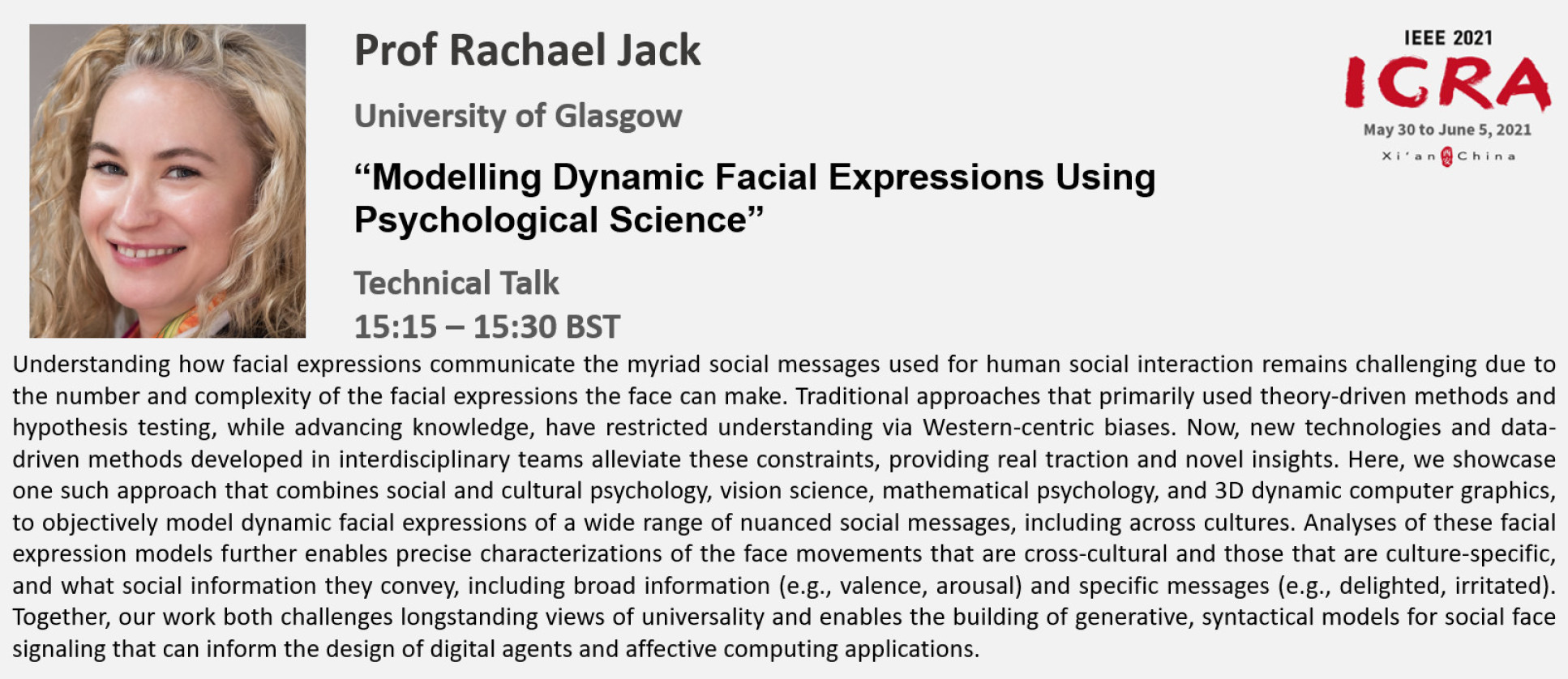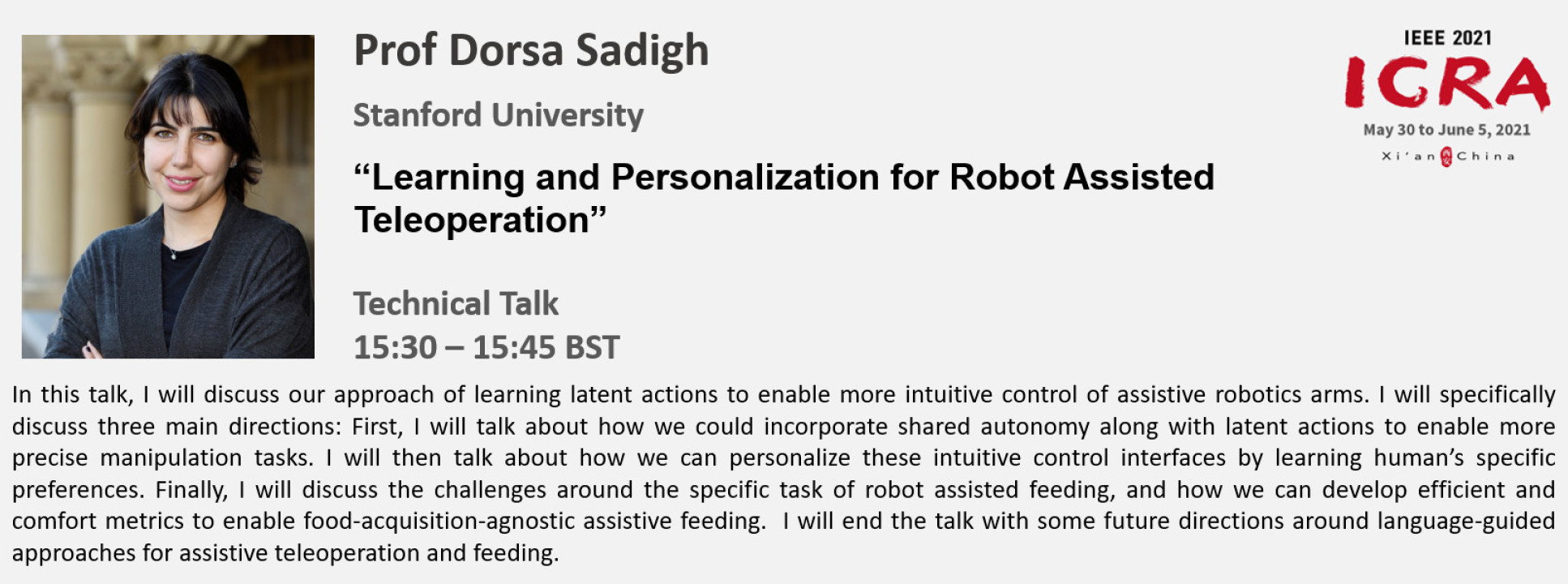ICRA2021 Full-Day Workshop on ‘Robot-Assisted Systems for Medical Training’

Motivation
Recent advances in soft robotics, active perception, augmented reality, and information gain theory offer promising opportunities to improve the consistency and transparency in medical training. For instance, they can be combined in various interventions such as providing functional robotic patients that can present physiological conditions, soft sensors to monitor and archive examination behaviors for subsequent comparisons. Such state-of-the-art innovations can be made possible through close collaborations between roboticists and medical practitioners, in which clinical needs and requirements can be clearly understood and effectively addressed.
Contribution
In this workshop, we discuss the term “behavioral lensing of perception” to broadly refer to the process of iterative conditioning of the body to improve perception of an environmental condition. We will use it as a theme to explore experimental techniques available to inform improvements in the medical and surgical skill acquisition process.
Speakers and participants are invited to share their research and experiment demonstrations (e.g. using physical setup or through video captures). These topics may be adopted in the ideation sessions to discuss how robotic systems may assist novice physicians in behavioural lensing of perception, and how roboticists should accommodate human behaviors in the robotic system designs. This will encourage all attendees to brainstorm and explore the ideas of incorporating recent advances in robotics in medical training simulators and systems, and to test hypothesis about the interplay between perception and action in medical procedures.
In addition, we will also facilitate discussions on the multimodal nature of perception (e.g. tactile, visual, and auditory, along with measurable biomedical markers) involved in medical procedures. As medical practitioners mainly rely on these factors during medical examinations, they will be able to elaborate on these based on their experience. This will promote the awareness on the influence of patient psychology and physiology on the accuracy and efficacy of perception and action in medical practitioners, and how these challenges can be solved by robotic systems.
Call for papers
We welcome researchers in the field to submit papers or extended abstracts to be presented as posters. As the conference situation remain virtual for the workshops, both a 2-minute recorded presentation and a poster are required if the manuscript is accepted. Submitted manuscripts should be up to 2 pages plus references, formatted according to the IEEE conference proceedings template. The submitted contributions will go through a single-blind review process and be selected based on the originality, technical contributions, clarity in presentation, and relevance to the workshop topics. Awards/certificates for best poster and presentation will be announced during the workshop. For submission, please directly email your paper to Liang He (liang@oxfordrobotics.institute). All submitted emails should follow a subject as "RoPat21 paper submission". Please find details in this flyer [].
Registration
Please fill this form to register free of charge.
Details
- Scope
- Workshop program
- Organizers
- Keynote speakers
- Invited talks
- Poster session
- Related past workshops
- Supports and Endorsements
Medical trainees usually acquire examination and surgical skills by practicing on real patients with feedback from experts. The complexity and nuances of taking actions such as conditioning the posture and stiffness of the hands, indentation, and speed control to improve perception of physiological conditions and accuracy of actions is a complex process that cannot be easily taught in a clinical setting. Recent advances in soft robotics, active perception, augmented reality, and information gain theory offer promising opportunities to improve the consistency and transparency of this process. Medical training simulators and robotic systems can benefit from these advances to improve the training efficiency, skill proficiency and safety.
This workshop brings together a community of roboticists and medics to understand current technology trends and future needs in robot assisted medical education. The objectives are to highlight latest technology advances in the area of robotic technologies to assist medical training and procedures, to discover new needs and opportunities for collective thinking to provide useful technologies for future medical systems, and to identify unanswered questions that will help to bridge gaps in our understanding of the basics of embodied perception, multimodal sensory-motor integration, and medical/surgical skill acquisition.

Thilina Dulantha Lalitharatne, Imperial College London
Florence Leong, Imperial College London
Liang He, University of Oxford
Yongxuan Tan, Imperial College London
Luca Scimeca, University of Cambridge
Ryman Hashem, University of Cambridge
Perla Maiolino, University of Oxford
Fumiya Iida, University of Cambridge
Thrishantha Nanayakkara, Imperial College London
Min Li, Xi’an Jiaotong University
Chaona Chen, Oliver G. B. Garrod, Robin A. A. Ince, Philippe G. Schyns, Rachael E. Jack "Modelling Variations in Dynamic Facial Expressions of Pain"
[]
Luke Holland, "Proposal of a Method to Transfer Emotional Meaning through Abstarct Visualizations"
[][]
Please see our RoPat20 IROS workshop for keynotes, invited talks, panel discussions, poster sessions, and interviews of clinicians.
Contact the PI
Professor Thrishantha Nanayakkara
RCS1 M229, Dyson Building
25 Exhibition Road
South Kensington, SW7 2DB
Email: t.nanayakkara@imperial.ac.uk

